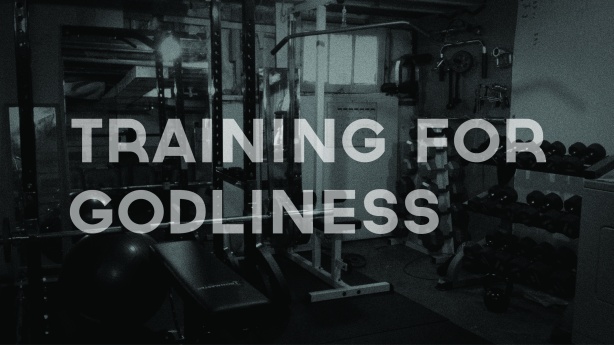 Training vs. Trying – Part 2 of 2
Training vs. Trying – Part 2 of 2
[compiled from The Life You’ve Always Wanted by John Ortberg]
– Trying hard can only accomplish so much. If you are serious about seizing the chance of a lifetime, you will have to enter into a life of training.
– There is an immense difference between training to do something and trying to do something.
– Spiritual disciplines are to life what calisthenics are to a game.
Mr. Ortberg defines a spiritual discipline as “any activity that can help me gain power to live life as Jesus taught and modeled it. How many spiritual disciplines are there? As many as you can think of, a few of which are practices such as solitude, servanthood, confession and meditation on Scripture. But we can turn almost any activity in a ‘training exercise’ for spiritual life.
Signs of Wise Spiritual Training:
Wise training respects the freedom of the Spirit. To speak of spiritual growth only as the product of training could make it sound like something we can engineer. Anytime a frog is turned into a prince – or even just a gentler, kinder frog – there is always something mysterious and awesome at work. In spiritual growth that ‘something mysterious’ is the work of the Spirit. An analogy from Scripture… “The wind blows wherever it wants. Just as you can hear the wind but can’t tell where it comes from or where it is going, so you can’t explain how people are born of the Spirit.” – John 3:8. Consider the difference between piloting a motorboat or a sailboat. We can run a motorboat by ourselves. We can fill the tank and start the engine. We are in control. But a sailboat is a different story. We can hoist the sails and steer the rudder, but we are utterly dependent on the wind. The wind does the work. If the wind doesn’t blow – and sometimes it doesn’t – we sit still in the water no matter how frantic we act. Our task is to do whatever enables us to catch the wind. Spiritual transformation is that way. We may be aggressively pursuing it, but we cannot turn it on and off. We can open ourselves to transformation through certain practices, but we cannot engineer it. We can take no credit for it. Our primary task is not to calculate how many verses of Scripture we read or how many minutes we spend in prayer. Our task is to use these activities to create opportunities for God to work. Then what happens is up to him. We just put up sail: ‘The wind blows where it chooses….’
Wise training respects our unique temperament and gifts. We need the freedom to discover how God wants us to grow, for his design will not look quite the same for everyone. Perhaps God speaks to us in special ways through nature. Perhaps he made us to be formed by music. We may have an above-average capacity for silence and prayer. Or we might respond most strongly to images, symbols and fine arts. C.S. Lewis once surmised that each person is created to see a different facet of God’s beauty – something no one else can see in quite the same way – and then to bless all worshipers through all eternity with an aspect of God they could not otherwise see.
Wise training will take into account our season of life. Our season of life – whatever it is – is no barrier to having Christ formed in us. Not in the least. Whatever our season of life, it offers its own opportunities and challenges for spiritual growth. Instead of wishing we were in another season, we ought to find out what this one offers. Life counts – all of it. Every moment is potentially an opportunity to be guided by God into his way of living. Every moment is a chance to learn from Jesus how to live in the kingdom of God.
Wise training respects the inevitability of troughs and peaks. There will be times of consolation and times of desolation. In times of consolation we like to pray because God seems so close, the Bible seems alive, sin looks bad, and stoplights all seem green. Times of desolation are just the opposite: The Bible seems dry, prayer grows hard, and God is far away. Both seasons are inevitable, and both seasons can bring unique growth.
Wise training begins with a clear decision. Jesus confronted people directly about the choice to become a follower. He came with the gracious announcement that it is now possible to live in the presence and under the reign of God – that was his Good News. It is possible to live in such a way that when people see us, they will say to themselves, “Wow! I didn’t know that a life could look like that.” It indeed happens. It has happened for many who have followed Christ, and it really is possible for us. This is the ‘pearl of great value’ that Jesus spoke, for which any sensible person would sell everything. This is the race for which we were born. But we will not drift into such a life. We must decide.